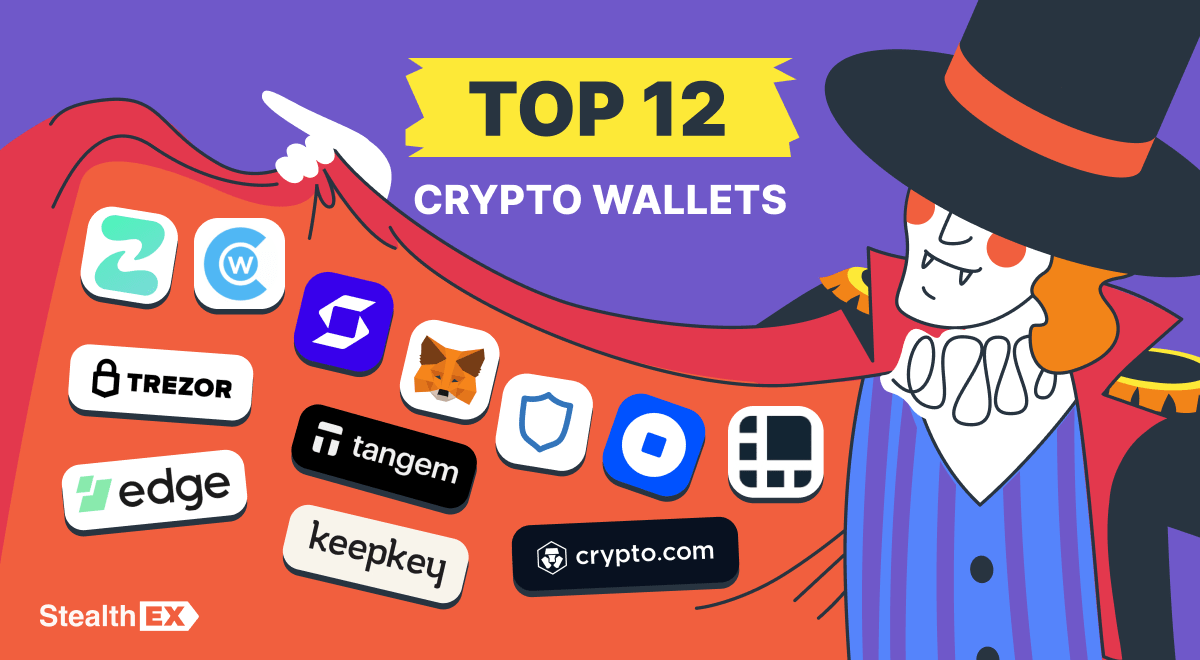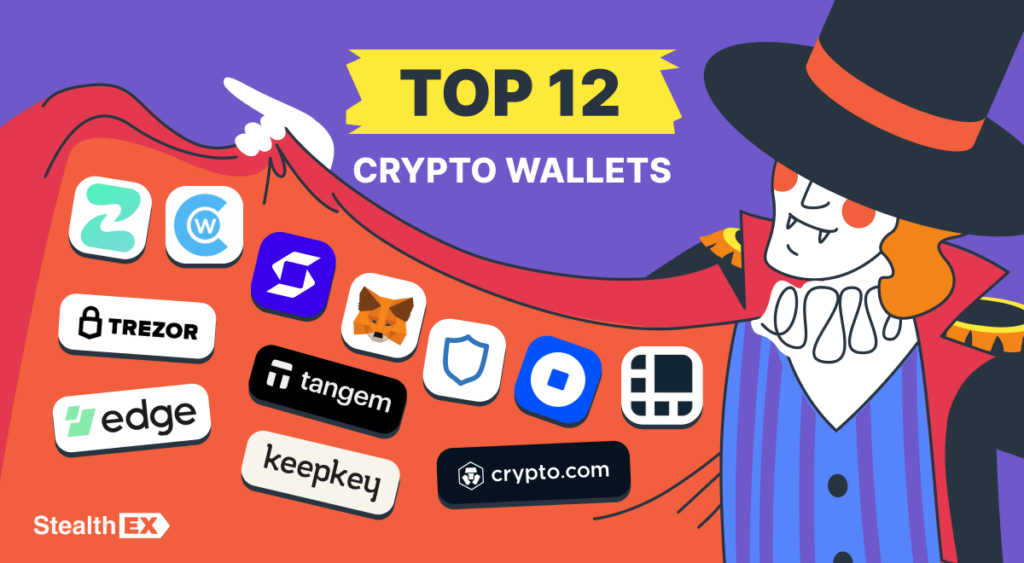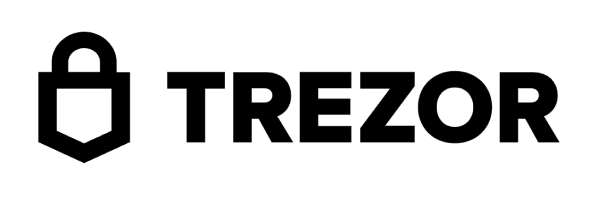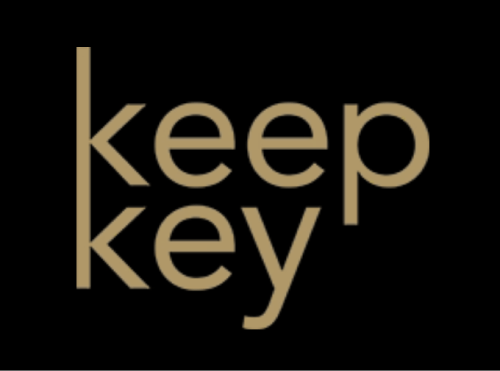Top Crypto Wallets for Bitcoin & Altcoins: The Ultimate Guide

Crypto wallets are the cornerstone of any crypto investor’s toolkit. This specialized tool goes beyond simply holding your coins; it acts as a gateway to interacting with the blockchain, enabling transactions, and managing your crypto portfolio.
Unlike traditional wallets that store physical bills, cryptocurrency wallets don’t hold the actual cryptocurrency itself. Instead, they securely store cryptographic keys that come in two forms: public keys and private keys.
- Public keys, following the elliptic curve cryptography protocol, are complex mathematical strings that act like your bank account number, allowing others to send you crypto.
- Private keys, on the other hand, are even more sensitive. These are often represented as a 256-bit number and act as the equivalent of your PIN, used for signing transactions and spending via cryptographic signatures.

There are lots of crypto wallets on the market today, each offering helpful features and security measures. From user-friendly mobile apps with hot storage functionality to cold storage devices built for maximum security through hardware isolation and often implementing multi-signature technology for added transaction authorization, the optimal choice depends on your investment style and risk tolerance. A seasoned investor with a sizable portfolio might prioritize the robust security of a hardware wallet, while an amateur user might favor the convenience of a mobile app with multi-signature capabilities for enhanced security. That’s why it’s essential to select the perfect fit for your crypto journey.
Understanding the functionalities and security considerations of each option, including hot versus cold storage, public and private key management, and potential cryptographic protocols used, is a way to make an informed decision and protect your digital assets.
Article contents
- 1 The Top 12 Crypto Wallets to Consider Now
- 1.1 Trust: A Security-Focused Wallet for Long-Term Investors
- 1.2 Cake Walllet: Your Keys, Your Coins
- 1.3 Edge: A Comprehensive Mobile Wallet for Secure Crypto Management
- 1.4 Ledger: A Safe Hardware Wallet for Every Crypto Need
- 1.5 Trezor: An Open-Source Wallet for Thousands of Cryptocurrencies
- 1.6 KeepKey: A User-Friendly Hardware Wallet With Staking Features
- 1.7 Coinbase: A Protected and Versatile Wallet for Beginners
- 1.8 MetaMask: The Most Popular Wallet for dApps and Browser Integration
- 1.9 ZenGo: A Keyless Wallet for Easy Management
- 1.10 Crypto.com: The Best DeFi Wallet for Effortless Yield Generation
- 1.11 Tangem: A Smart Card Hardware Wallet for On-the-Go Security
- 1.12 SafePal: A Fortress Hardware Wallet With DEX Integration
- 2 Top Crypto Wallets: Comparison
- 3 Conclusion
The Top 12 Crypto Wallets to Consider Now
Here are the best crypto wallets in terms of functionality and security:
- Trust: A Security-Focused Wallet for Long-Term Investors.
- Cake Walllet: A User-Friendly Mobile Wallet with Enhanced Features
- Edge: A Comprehensive Mobile Wallet for Secure Crypto Management
- Ledger: A Safe Hardware Wallet for Every Crypto Need.
- Trezor: An Open-Source Wallet for Thousands of Cryptocurrencies.
- KeepKey: A User-Friendly Hardware Wallet With Staking Features.
- Coinbase: A Protected and Versatile Wallet for Beginners.
- MetaMask: The Most Popular Wallet for dApps and Browser Integration.
- ZenGo: A Keyless Wallet for Easy Management.
- Crypto.com: The Best DeFi Wallet for Effortless Yield Generation.
- Tangem: A Smart Card Hardware Wallet for On-the-Go Security
- SafePal: A Fortress Hardware Wallet With DEX Integration.
Trust: A Security-Focused Wallet for Long-Term Investors
Trust is designed for the safe storage of cryptocurrencies. The main task is to ensure the safety of your digital assets while you follow a “buy and hold” strategy, counting on the further growth of the crypto industry. This wallet is suitable for long-term investors who want to avoid risking their savings.

The main Trust advantage is a high level of security. Users have full control over their private keys. This means that only you can access your funds. Even the app developers don’t have access to them.
Another important benefit is the support of a huge number of cryptocurrencies. You can store popular coins like BTC, ETH, BNB, TRX, and hundreds of lesser-known altcoins. The app regularly adds support for new assets.
Furthermore, this wallet has a convenient cryptocurrency exchange tool. It allows you to easily convert one coin to another right in the app, without the need to use third-party exchanges. The exchange process is simple, even for beginners.
Trust supports the work with dApps in popular blockchain networks, like Ethereum, BSC, and others. Which distinguishes the app from many other wallets, where dApps aren’t available.
Cake Walllet: Your Keys, Your Coins
Cake is a versatile non-custodial mobile wallet designed to offer ease of use without compromising on security. It supports a wide range of cryptocurrencies and provides additional functionalities to enhance the user experience.

Cake Wallet offers seamless integration with various blockchains, allowing users to manage multiple assets within a single app. Its intuitive interface makes it easy for both beginners and experienced users to navigate and perform transactions effortlessly.
Key Features:
- Multi-Currency Support: Supports Bitcoin, Ethereum, and numerous other altcoins, enabling diversified portfolio management.
- Built-In Exchange: Users can swap cryptocurrencies directly within the app without needing external exchanges.
- Enhanced Security: Implements strong encryption standards and offers biometric authentication to protect user funds.
- User-Friendly Interface: Designed with simplicity in mind, making it accessible for users of all experience levels.
- Open-Source Code: Ensures transparency and allows the community to audit and improve the wallet’s security features.
Cake Wallet is an excellent choice for users looking for a reliable mobile wallet that balances functionality with ease of use.
Edge: A Comprehensive Mobile Wallet for Secure Crypto Management
Edge Wallet is renowned for its emphasis on security and user privacy. It offers a comprehensive suite of features that cater to both novice and seasoned crypto enthusiasts.

Edge Wallet stands out with its client-side encryption, ensuring that users’ private keys are never exposed to external servers. This commitment to privacy makes it a trustworthy option for those concerned about the safety of their digital assets.
Key Features:
- Multi-Asset Support: Handles a wide array of cryptocurrencies, allowing users to manage their entire portfolio within a single application.
- User Privacy: Does not require personal information to create a wallet, maintaining anonymity for its users.
- Secure Backup Options: Provides encrypted backups that can be stored on various cloud services, ensuring users can recover their wallets if needed.
- In-App Exchange: Facilitates easy swapping of assets without leaving the wallet interface.
- Integration with Hardware Wallets: Supports integration with popular hardware wallets for enhanced security.
- Intuitive Design: Offers a clean and straightforward user interface, making navigation and transaction management seamless.
Edge Wallet is ideal for users who prioritize security and privacy while seeking a feature-rich mobile wallet experience.
Ledger: A Safe Hardware Wallet for Every Crypto Need
Ledger offers several hardware wallets, each supporting over 5,500 coins and NFTs. They all work with the Ledger Live app for various devices.

1. Ledger Nano S Plus is an upgraded version of the previous model. It’s the most affordable type with these features:
- Uses the CC EAL6+ chip to store private keys;
- OLED display 128×64 pixels;
- Resistant to physical attacks, water, and high temperatures.
It only comes with a USB-C to USB-A cable, so a separate USB-C to USB-C cable may be required.
2. Ledger Nano X is a hardware wallet of the new generation with these features:
- Increased protection by the CC EAL5+ chip;
- OLED display 128×64 pixels;
- Bluetooth connection with a smartphone.
The model outperforms competing models in terms of functionality.
3. Ledger Stax is a new hardware device with advanced functionality and enhanced security. It looks stylish with its iPad-like design, touchscreen, curved display, and these benefits:
- The top-of-the-line CC EAL6+ chip;
- E Ink 400×672 pixels screen;
- Bluetooth support;
- Qi wireless charging;
- A heavy-duty metal and ceramic body.
The high cost may put off potential buyers. But it may be one of the best options in terms of security and convenience.
Trezor: An Open-Source Wallet for Thousands of Cryptocurrencies
Trezor is an open-source hardware wallet for storing thousands of cryptocurrencies. It’s one of the most reliable wallets that supports all popular altcoins.

Trezor hardware wallets are built on a foundation of entirely open-source code. This means anyone can scrutinize defenses, unearthing vulnerabilities before they become threats. This transparency fosters a community of engineers who are constantly honing Trezor’s shield.
What’s more, Trezor Code welcomes contributions from the brightest minds in crypto. This collaborative spirit fosters innovation, with Trezor pioneering industry standards like BIP39 (a protocol for generating human-readable recovery phrases) and BIP44 (a system for hierarchical deterministic key generation). These open-source protocols empower users and strengthen the entire crypto ecosystem.
Investors should also know that Trezor hardware wallets aren’t locked to just Bitcoin. This wallet provides secure storage for over 8,000 coins and tokens, both natively supported in the Trezor Suite and through trusted integrations with third-party tools.
KeepKey: A User-Friendly Hardware Wallet With Staking Features
The KeepKey wallet was released in 2015, and to this day, it remains one of the most popular hardware wallets. It’s distinguished from other models by its durable metal case and large screen. Users can exchange coins inside the wallet and place them in the staking protocol.

This wallet supports over 40 top coins and ERC-20 tokens. Through integration with MyEtherWallet, the list expands to over a hundred cryptocurrencies.
Using KeepKey, you can exchange assets within the wallet and stake via the built-in ShapeShift tool.
To create a wallet, it’s enough to create a strong PIN code. Verification isn’t needed to work with digital coins. KYC will be required only for fiat transactions.
Also, each transaction is conducted in a separate environment, inaccessible to viruses and unauthorized interference.
The device can be connected to Mycelium, MyEtherWallet, Electrum, and other programs, which enhances KeepKey performance.
Coinbase: A Protected and Versatile Wallet for Beginners
The Coinbase wallet is part of the ecosystem created by the company of the same name. Access to a large number of services makes it one of the most functional products in the niche.

Coinbase is protected by Secure Enclave technology. This technology securely stores the user’s private keys. Authentication options such as 2FA are used to control access. SMS authentication through verified phone numbers helps gain access to the wallet. The wallet also uses Google Authenticator for exceptional cases. Moreover, a Coinbase wallet app grants access using a four-digit PIN only.
Furthermore, Coinbase transcends the limitations of a traditional exchange by facilitating seamless sending and receiving of cryptocurrencies across various platforms and individual wallets. This flexibility empowers users to capitalize on profitable opportunities throughout the DeFi ecosystem. The wallet’s compatibility with major fiat currencies like USD simplifies the process of converting between traditional and digital assets.
The burgeoning NFT market presents exciting opportunities for collectors and investors, and Coinbase offers numerous benefits to those who are willing to access this industry. It’s at the forefront of this revolution by offering secure NFT storage. Users can leverage the platform’s functionality to seamlessly buy and sell these digital collectibles within their wallets.
MetaMask: The Most Popular Wallet for dApps and Browser Integration
MetaMask is the most famous cryptocurrency wallet, used by 10 million cryptocurrency users. Every dApp on Ethereum or compatible blockchains supports Metamask.

It’s available as an extension in browsers such as Chrome, Brave, Opera, Edge, and Firefox. It’s also available as a mobile app.
The wallet works simply. First, you need to transfer ETH or any other ERC-20 standard token (it can be BAT, USDT, or LINK) to it and start working with it. At this time, all your main assets continue to be stored in your main wallet.
A special feature of Metamask is the ability to create separate addresses for different purposes, as if you had multiple payment cards:
- One for family purchases;
- The second one for paying personal bills;
- The third one for keeping your savings.
The wallet interface is easy and intuitive for the owner; it quickly integrates into the browser and allows you to immediately start paying bills from it.
ZenGo: A Keyless Wallet for Easy Management
ZenGo is the frontrunner in the keyless crypto wallet space. This tool eliminates the need for a recovery phrase. This innovation simplifies the user experience while maintaining robust security through a multi-pronged approach.

This wallet leverages Multi-Party Computation technology, which eliminates failures associated with seed phrases. ZenGo incorporates secure backup options via iCloud or Google Drive and integrates biometric facial recognition.
Moreover, ZenGo offers comprehensive support for a growing list of cryptocurrencies and tokens. Navigation is streamlined, with essential functions readily accessible at the bottom of the app. The “Actions” section serves as a central hub for buying, selling, trading crypto, and connecting to dApps.
This wallet empowers users to effortlessly stake Tezos tokens within the wallet, eliminating the complexities and paperwork often associated with staking. This integration simplifies participation in the Tezos blockchain and fosters a more engaged user base.
ZenGo also fosters a seamless workflow for interacting with dApps through WalletConnect compatibility. This eliminates the frustrations often associated with connecting and disconnecting wallets, making ZenGo a compelling choice for active DApp users and those transferring crypto assets frequently.
Crypto.com: The Best DeFi Wallet for Effortless Yield Generation
The Crypto.com wallet caters specifically to the DeFi ecosystem. It’s a secure and intuitive platform for managing your investments within the DeFi space. This wallet streamlines interaction with DeFi protocols, making it accessible to a broader range of investors.

This wallet allows users to manage a diverse portfolio of cryptocurrencies and DeFi assets across various blockchain networks. This eliminates the need for multiple wallets for different chains, fostering a more unified management experience.
Moreover, Crypto.com prioritizes user asset safety by implementing robust security measures. This includes multi-signature and cold storage, mirroring the security practices employed by institutional investors.
This DeFi wallet offers iOS and Android apps. This empowers investors to conveniently access and manage their DeFi portfolios on-the-go, ensuring constant control over their assets.
Crypto.com is a fascinating choice for those who are into DeFi. It offers the “one-click farming” feature that allows users to stake their holdings within DeFi protocols and earn attractive rewards with a single click.
The platform also boasts Annual Percentage Yield rates, enabling users to generate passive income from their cryptocurrency holdings. This feature caters to investors seeking to maximize returns on their DeFi assets.
Tangem: A Smart Card Hardware Wallet for On-the-Go Security
Tangem introduces a unique approach to cryptocurrency storage with its smart card hardware wallets. These sleek, card-like devices offer a convenient and secure way to store and manage digital assets.

Tangem wallets leverage advanced NFC technology, allowing users to interact with their crypto holdings effortlessly. The smart card design eliminates the complexities associated with traditional hardware wallets, providing an accessible solution for everyday use.
Key Features:
- Smart Card Design: Compact and portable, resembling a credit card for easy carrying and use.
- NFC Integration: Enables quick and secure transactions by simply tapping the card against a compatible device.
- Secure Storage: Utilizes robust encryption to protect private keys, ensuring that assets remain safe from unauthorized access.
- User-Friendly Setup: Simplifies the wallet creation process, making it easy for users to get started without technical expertise.
- Multi-Currency Support: Compatible with various cryptocurrencies, allowing users to store and manage multiple assets on a single card.
- Durable Build: Designed to withstand daily wear and tear, providing long-lasting protection for digital assets.
Tangem is perfect for users seeking a highly portable and straightforward hardware wallet solution without sacrificing security.
SafePal: A Fortress Hardware Wallet With DEX Integration
The SafePal hardware wallet prioritizes secure storage and management of diverse digital assets.
SafePal offers native support for a wide range of cryptocurrencies and tokens. It integrates with the in-app “SafePal Swap” decentralized exchange. This allows users to seamlessly swap assets directly within the Safepal app, eliminating reliance on external exchanges and maintaining private key custody.

What’s more, security is paramount for SafePal. It leverages a Secure Element chip with robust encryption for private key storage. An HD wallet structure enables the generation of multiple addresses from a single seed phrase.
Here are some extra safety features:
- EAL 5+ certification. The SE chip undergoes independent evaluation, achieving the highest security rating.
- Air-gap signing. Transactions are signed offline, removing internet or external connection vulnerabilities.
- True random number generation. This critical feature ensures private key generation is unpredictable and resistant to hacking attempts.
The combination of multi-chain support, DEX integration, and robust security features makes Safepal a compelling option for investors seeking a safe solution for keeping their assets.
Top Crypto Wallets: Comparison
| Name | Type | Price | Supported Currencies |
| Trust | Hot wallet | Free | Over 160 coins |
| Cake | Hot wallet | Free | Bitcoin, Ethereum, and other altcoins |
| Edge | Hot wallet | Free | Wide array of cryptocurrencies |
| Ledger Stax | Cold wallet | $279 | Over 5,500 coins and tokens |
| Ledger Nano X | Cold wallet | $149 | Over 5,500 coins and tokens |
| Ledger Nano S Plus | Cold wallet | $79 | Over 5,500 coins and tokens |
| Trezor One | Cold wallet | $69 | Over 8,000 coins and ERC-20 tokens |
| KeepKey | Cold wallet | $78 | Over 40 coins and ERC-20 tokens |
| Coinbase | Hot wallet | Free | Over 1,000 coins |
| MetaMask | Hot wallet | Free | Ethereum and all ERC-20 tokens |
| ZenGo | Hot wallet | Free | Over 120 coins |
| Crypto.com | Hot wallet | Free | Over 1,000 coins |
| Tangem | Cold wallet | Free | Thousands of cryptocurrencies |
| SafePal | Cold wallet | $49 | All the tokens on over 100 blockchains |
Conclusion
Crypto wallets are essential for anyone venturing into the cryptocurrency world. They securely store cryptographic keys, allowing investors to interact with blockchains, send and receive crypto, and manage their portfolios. There are two main types of wallets: hot wallets, which offer convenient access but are internet-connected and thus more vulnerable, and cold wallets, which prioritize security by storing keys offline on a physical device.
Choosing the right wallet is important, but what about buying and exchanging crypto? StealthEX is your one-stop shop for secure and non-custodial crypto swaps. This exchange keeps your identity private, so you can trade freely. You can pick from over 1,500 cryptocurrencies, including popular coins and niche tokens. You will never face any delays, even when buying large sums.
Just go to StealthEX crypto exchange, choose the amount of the cryptocurrency you want to swap, for example, ETH to BTC, and click Start Exchange.
Make sure to follow StealthEX on Medium, X, Telegram, YouTube, and Publish0x to stay updated about the latest news on StealthEX and the rest of the crypto world.
Don’t forget to do your own research before buying any crypto. The views and opinions expressed in this article are solely those of the author.
crypto wallet cryptocurrency cryptocurrency wallet wallet walletsRecent Articles on Cryptocurrency
 Useless Coin Price Prediction: Is USELESS Crypto a Good Investment?
Useless Coin Price Prediction: Is USELESS Crypto a Good Investment?  OFFICIAL TRUMP Coin Price Prediction: How High Will TRUMP Crypto Go?
OFFICIAL TRUMP Coin Price Prediction: How High Will TRUMP Crypto Go? 
